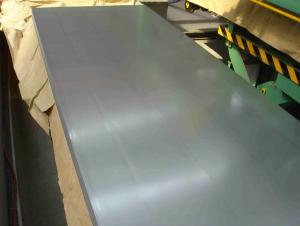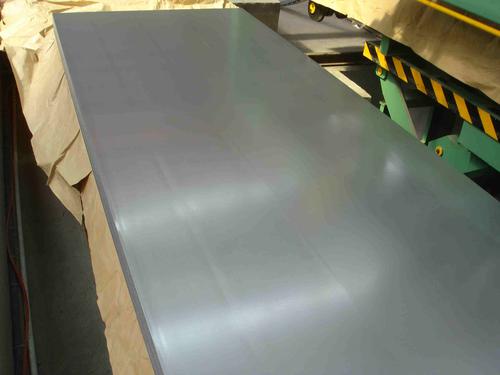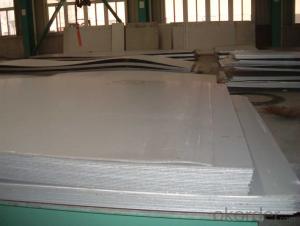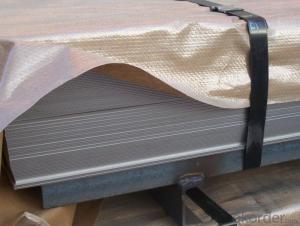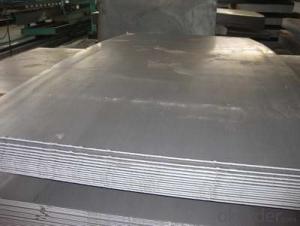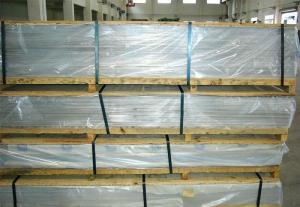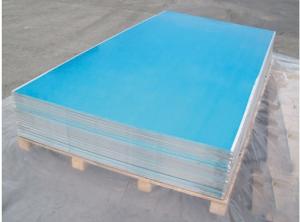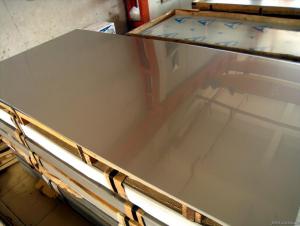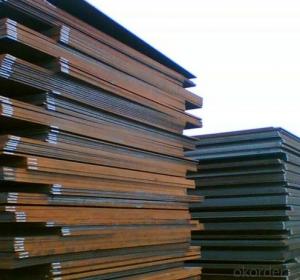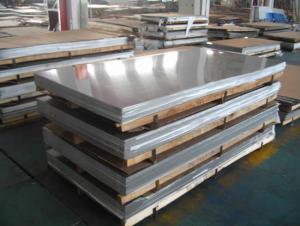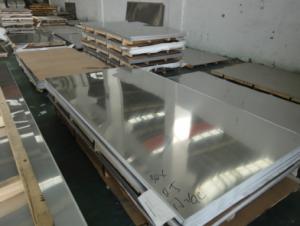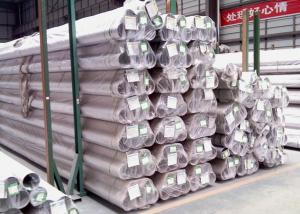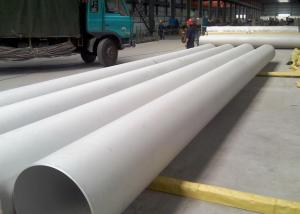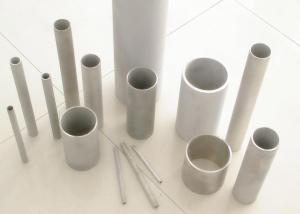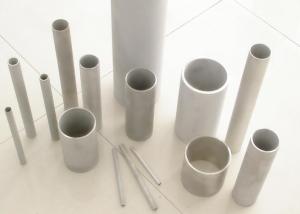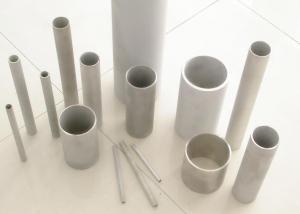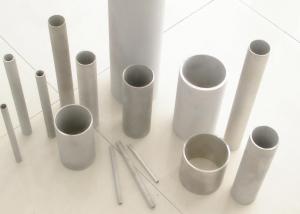Stainless Steel Sheet With Best Quality In Our Warehouse
- Loading Port:
- Tianjin
- Payment Terms:
- TT or LC
- Min Order Qty:
- 4 m.t.
- Supply Capability:
- 5000 m.t./month
OKorder Service Pledge
OKorder Financial Service
You Might Also Like
1.Structure of Product Description
Cold rolled Stainless re many different grades, such as: 200 series, 300 series, 400 series, 900series, etc. The detailed grade are as follows: 201, 202, 301, 304, 316, 410, 420, 430, etc.
The surface is including 2B, BA, Mirror Finish, Checkered, etc.
2. Main features of the product
a. Competitive price
b. Frist-Class Service.
c. Shortest service.
3. Image.
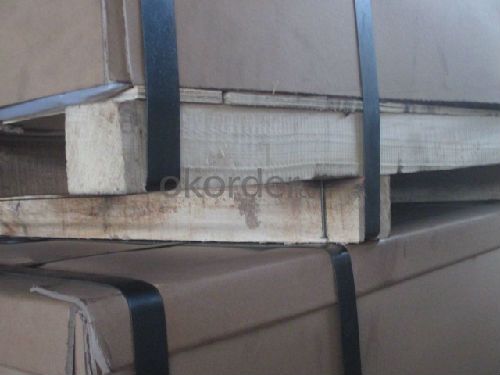
4. Product detailed sizes:
1000mm*2000mm, 1219mm*2438mm,1220mm*2440mm, 1250mm*2500mm,1500mm*3000mm, etc.
5. FAQ:
What is the quality standard?
---Usually our standard is GB3880-2006 or else.
What is the width range?
---It is from 1000mm to 2500mm, etc.
What is the length range?
---It is from 2000mm to 6000mm, etc.
What is the MOQ for your products yet?
---Normally it is around 3 tons/each size.
How many tons did you export in one year?
What is your mainly products?
---Normally they are stainless steel sheet, stainless steel coil, stainless steel checkered sheet, stainless steel mirror finished sheet, color coated stainless steel sheet, etc.
- Q: Are stainless steel sheets suitable for chemical processing equipment?
- Yes, stainless steel sheets are highly suitable for chemical processing equipment. Stainless steel is known for its exceptional corrosion resistance, making it resistant to chemical substances and environments. It is also durable, strong, and easy to clean, making it a preferred material for chemical processing equipment that requires regular exposure to various chemicals and rigorous cleaning procedures. Additionally, stainless steel has a high melting point, making it suitable for handling high temperatures often involved in chemical processes. Overall, stainless steel sheets are an excellent choice for chemical processing equipment due to their corrosion resistance, durability, strength, and ease of maintenance.
- Q: How do you remove oil stains from stainless steel sheets?
- In order to eliminate oil stains from stainless steel sheets, the following steps can be followed: 1. To start, utilize a clean cloth or paper towel to wipe the affected area and remove any excess oil or grease. 2. Combine a mild dish soap with warm water in a bowl or bucket. Dip a soft sponge or cloth into the soapy mixture and gently scrub the stained area using circular motions. 3. For more stubborn stains, a non-abrasive cleaner specifically designed for stainless steel can be employed. Apply a small amount of the cleaner to the stained area and utilize a soft cloth to rub it in. It is important to adhere to the manufacturer's instructions for the cleaner. 4. Thoroughly rinse the area with warm water to eliminate any soap residue. 5. To further restore shine and eliminate any remaining stains, a paste can be created by combining baking soda and water. Apply the paste to the stained area and allow it to sit for a few minutes. Then, gently scrub with a soft cloth or sponge. Rinse with warm water and dry with a clean towel. 6. To prevent future stains, it is advisable to consider using a stainless steel cleaner or polish. These products can aid in maintaining shine and making it easier to clean any spills or stains that may occur. It is essential to always test any cleaning product or method on a small, inconspicuous area of the stainless steel sheet before applying it to the entire surface. Additionally, it is important to avoid using abrasive materials or scrub brushes with harsh bristles as they can cause scratches on the stainless steel.
- Q: What's the difference between 304 stainless steel and 314?
- 304 stainless steel is a universal stainless steel material: 314 stainless steel; high temperature oxidation resistance and strong mechanical properties; high heat resistant stainless steel, and 314 austenitic stainless steel, high temperature oxidation resistance and creep resistance. 314 stainless steel used in furnace tube difference
- Q: Can stainless steel sheets be bent or formed?
- Yes, stainless steel sheets can be bent or formed. Stainless steel is a highly versatile material that can be easily manipulated into various shapes and forms. It has excellent ductility, which allows it to be bent, stretched, or formed without cracking or breaking. However, the degree to which stainless steel sheets can be bent or formed depends on the thickness and grade of the material. Thinner sheets are generally more malleable and easier to bend, while thicker sheets may require more force or specialized equipment for shaping. Additionally, certain stainless steel alloys may have specific limitations on their formability. Overall, stainless steel sheets can be bent or formed to meet specific design requirements, making them a popular choice for a wide range of applications in industries such as construction, automotive, and manufacturing.
- Q: Can stainless steel sheets be used for elevator ceilings or floors?
- Yes, stainless steel sheets can be used for elevator ceilings or floors. Stainless steel is a highly durable and versatile material that is commonly used in various architectural applications, including elevator interiors. It offers numerous benefits such as corrosion resistance, easy maintenance, and a sleek and modern appearance. Stainless steel sheets can be customized to fit the specific dimensions and design requirements of elevator ceilings or floors, providing a stylish and functional solution. Additionally, stainless steel is compatible with various elevator accessories like lighting fixtures, handrails, and buttons, allowing for seamless integration into the overall elevator design.
- Q: What is the minimum thickness of stainless steel sheets available?
- The minimum thickness of stainless steel sheets available can vary depending on the manufacturer and the specific grade of stainless steel being used. Generally, the thinnest stainless steel sheets available range from 0.4mm to 0.5mm. However, it is important to note that some manufacturers may offer thinner sheets, such as 0.3mm, but these may be more specialized or less commonly available. If you require a specific thickness for your project, it is recommended to consult with stainless steel suppliers or manufacturers to determine the options available to you.
- Q: What are the common sizes and thicknesses available for stainless steel sheets?
- Stainless steel sheets come in a variety of sizes and thicknesses to suit different applications and requirements. The common sizes for stainless steel sheets range from 36 inches by 96 inches (3 feet by 8 feet) to 48 inches by 120 inches (4 feet by 10 feet), with some variations in between. These sizes are commonly used in construction, industrial, and architectural projects. In terms of thickness, stainless steel sheets are available in various gauges. The most common thicknesses include 22 gauge (0.030"), 20 gauge (0.036"), 18 gauge (0.048"), 16 gauge (0.060"), 14 gauge (0.075"), and 12 gauge (0.105"). Thinner sheets, such as 26 gauge (0.018") and 24 gauge (0.024"), are also available for more delicate applications. It is important to note that these sizes and thicknesses may vary depending on the manufacturer and supplier. Additionally, custom sizes and thicknesses can also be obtained through special orders to meet specific project requirements.
- Q: Are stainless steel sheets resistant to radiation?
- Yes, stainless steel sheets are generally resistant to radiation. Stainless steel is known for its high resistance to corrosion and oxidation, and it has been used in various industries where radiation exposure is a concern, such as nuclear power plants, medical facilities, and laboratories. Stainless steel's resistance to radiation is due to its composition, which includes chromium, nickel, and other alloying elements that form a protective oxide layer on the surface, preventing radiation from penetrating the material. However, it is important to note that the level of radiation resistance may vary depending on the specific grade and thickness of the stainless steel sheet. Therefore, it is advisable to consult with experts or refer to specific technical specifications when considering the use of stainless steel sheets in radiation-prone environments.
- Q: Can stainless steel sheets be used for water filtration systems?
- Certainly, water filtration systems can make use of stainless steel sheets. Due to their outstanding corrosion resistance and durability, stainless steel is widely employed in water filtration. It possesses the ability to withstand high pressure, temperature fluctuations, and exposure to various chemicals, rendering it suitable for prolonged use in water filtration applications. Moreover, the smooth surface of stainless steel sheets facilitates effortless cleaning and prevents the accumulation of bacteria and other impurities. Furthermore, stainless steel is a non-reactive material, guaranteeing the absence of any harmful substances in the filtered water and ensuring its safety for consumption. In conclusion, stainless steel sheets are a dependable and efficient choice for water filtration systems.
- Q: Are stainless steel sheets suitable for chemical reactors?
- Chemical reactors can utilize stainless steel sheets as they possess favorable properties for this purpose. The chemical industry often opts for stainless steel due to its exceptional resistance to corrosion. It can withstand a broad spectrum of chemicals, including acids, alkalis, and solvents, without experiencing significant deterioration or reacting with the substances being processed. The selection of stainless steel sheets for chemical reactors is primarily based on their high strength, durability, and ability to withstand high temperatures and pressure. They can endure the challenging conditions and aggressive substances encountered in chemical processes, all while maintaining their structural integrity. Furthermore, stainless steel sheets are easy to clean and maintain, making them well-suited for applications where cleanliness is of utmost importance, such as the pharmaceutical and food processing industries. They also exhibit excellent heat transfer properties, enabling efficient temperature control within the reactor. In conclusion, stainless steel sheets are a dependable option for chemical reactors due to their corrosion resistance, strength, durability, and thermal properties. They offer a secure and long-lasting solution for handling various chemicals, making them widely utilized in the chemical industry.
Send your message to us
Stainless Steel Sheet With Best Quality In Our Warehouse
- Loading Port:
- Tianjin
- Payment Terms:
- TT or LC
- Min Order Qty:
- 4 m.t.
- Supply Capability:
- 5000 m.t./month
OKorder Service Pledge
OKorder Financial Service
Similar products
Hot products
Hot Searches
Related keywords
